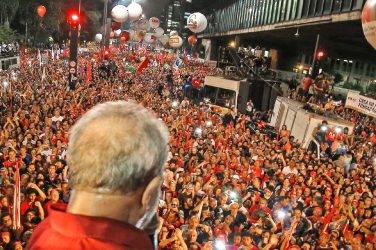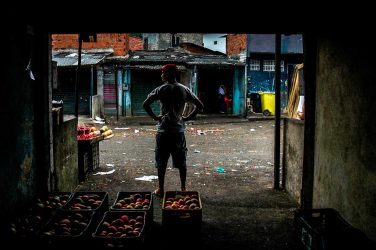 Brazil’s banking strike has just reached 30 days this Wednesday (October 5) and is already as long as the strike of 2004, which was the longest in history.
Brazil’s banking strike has just reached 30 days this Wednesday (October 5) and is already as long as the strike of 2004, which was the longest in history.
According to the note issued by the National Confederation of Financial Sector Workers, more than 13,000 bank branches and 44 administrative centers have stopped their activities.
“This figure represents 55% of total branches throughout Brazil,” says the confederation’s note.
The workers demand a pay rise of 14.78%, profit and results sharing equivalent to 3 wages plus US$ 2,583, minimum salary of US$ 1,223 and benefits.

The National Bank Federation has offered a pay rise of 7% along with a one-time payment valued at US$ 1,086.86 for each worker, with a real increase of 0.5% for 2017.
According to the federation, the total shown in the proposal for 2016 “leads to real increase in the income of the vast majority of workers.”
“If the sector was in crisis, we would agree to make a different negotiation, but it is not. They have to increase this proposal,” said Juvandia Moreira, president of the trade union of São Paulo.
The strike was called following more than 40 days of negotiations between workers’ representatives and the National Federation of Banks (FENABAN) without reaching an agreement.
“The pay rise the banks are offering is unimaginable,” said Robert von der Osten, chairman of the National Confederation of Financial Industry Workers (CONTRAF), who listed other demands, including “job security, better working conditions by easing off on the excessively high targets that are placing health strains on workers, and equal opportunities.”
In a statement, FENABAN said it remains open for negotiations, adding that the offer it made to the workers includes profit sharing for employees.
The organization noted that the population will be able to use ATMs or online, mobile and telephone banking during the strike, or go to accredited locations for cash withdrawals, payments, and other financial transactions.
No Solution
After one month of strike there is no solution in sight to the conflict.
The strike in course equals that of 2004, when for the first time there were negotiation tables unified between public and private banks, but is still far from reaching the record established in 1951. Then the sector kept paralyzed for 69 days.
Despite the action from bankers, who in some regions put policemen to pressure and force workers to do their work, mobilization continues strong, highlighted Contraf president, Roberto von der Osten.
The offer from the banks, said von der Osten, was rejected by the National Command of Bank Workers because it is not enough and would represent losses for workers, as it does not even cover the accumulated inflation.
Statements made in São Paulo by the national president of the Unified Workers’ Central (CUT) of Brazil, Vagner Freitas, blame the government of Michel Temer of being a ‘hidden’ protagonist in the attempt of the financial sector to reduce salaries.
“Banks are joining the executive to defeat the policy of salary replacement, which is the real intention of this coup government for all the categories,” sustained Freitas.
He stressed that bank workers are being punished by a government that wants to apply an economic policy aimed to sweep away the rights of workers using as excuse a false austerity.
ABr/PL











